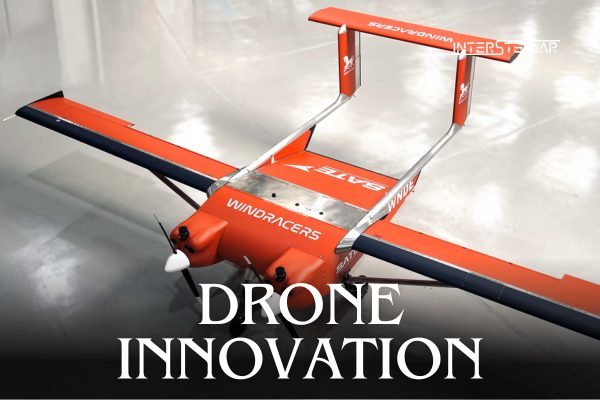Windracers Ultra Mark 2 Drone: Revolutionising Humanitarian Aid and Climate Research
The new version of the Windracers Ultra self-flying cargo drone, the Ultra Mark 2, has been selected by Aviation Sans Frontières (ASF) to deliver vital humanitarian aid in central Africa. This upgraded drone boasts double the power and a 50% increase in payload capacity, making it a game-changer in remote aid delivery.
Windracers Ultra Mark 2 Advanced Capabilities for Tough Missions
The Ultra Mark 2 can carry up to 150 kg of cargo, travel distances of up to 1000 km (621 miles), and remain airborne for nine hours. Its robust design allows it to land on almost any terrain, requiring just 150 metres (492 ft.) for landing. It can operate in challenging conditions, including fog, day or night, with minimal input from ground operators.
Simon Muderack, Chief Executive of Windracers, highlighted the extensive improvements:
“Broadly, it looks similar to the previous model but has double the power, double the payload, and over 80 upgrades that enhance its usability and dependability.” He also noted the distinctive V-tail at the rear as a striking new feature.
Supporting Humanitarian Efforts
ASF plans to integrate the Ultra Mark 2 into its humanitarian operations, specifically to reach populations in inaccessible areas where traditional aid delivery methods are too dangerous or costly. Benoit Gaborit, ASF’s Head of Mission, explained:
“Our daily job is to go where others can’t. The drone helps us access populations while reducing risks for aid workers.”
Expanding Beyond Humanitarian Aid
Beyond delivering humanitarian aid, the Ultra Mark 2 is a key tool for scientific research. It will carry radar systems for the Norwegian Research Centre (NORCE) to monitor climate changes in Antarctica. Previously, the British Antarctic Survey tested it for collecting critical data on the frozen continent.
Affordable and Scalable Production
Windracers aims to produce one Ultra Mark 2 per day, offering it at a price comparable to a family car. Alternatively, organisations can purchase cargo capacity as a service, similar to traditional logistics companies. The drone is already operational in the UK, US, and Ukraine, helping transport essential payloads to remote areas efficiently and safely.
With inputs from Reuters





